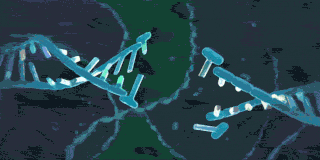Human DNA serves as both a biological blueprint and a dynamic record-keeper, encoding not only the instructions for cellular function but also layers of ancestral and experiential information. This report synthesizes contemporary research across molecular biology, epigenetics, and metaphysical studies to examine how DNA stores generational knowledge and its implications for medicine, biotechnology, and spiritual philosophy. Emerging evidence demonstrates that genetic material operates as a multigenerational ledger through mechanisms like epigenetic markers, endogenous recording systems, and potential metaphysical memory storage, challenging traditional views of heredity while opening revolutionary applications in precision medicine and consciousness studies.
Molecular Architecture of Genetic Memory Storage

DNA as a Biological Storage Medium
The double-stranded helix structure provides inherent data storage capabilities through nucleotide base pairing (A-T, C-G), with each human genome containing approximately 3.2 billion base pairs capable of storing ~750 MB of raw data. Beyond static information, recent studies reveal dynamic recording mechanisms:
CRISPR-Cas systems in prokaryotes demonstrate natural DNA-based memory through viral genome fragment integration
Cytosine methylation patterns preserve cellular differentiation history, maintaining tissue-specific gene expression profiles across mitotic divisions
Retron reverse transcriptases enable single-strand DNA synthesis from RNA templates, creating editable memory substrates in bacterial systems
The CAMERA (CRISPR-mediated analog multi-event recording apparatus) platform exemplifies engineered memory storage, using base editors (BE3) to induce C→T mutations at targeted loci with 94% efficiency in mammalian cells2. This system achieves temporal event recording through sequential gRNA activation, encoding both digital (presence/absence) and analog (signal intensity) data in chromosomal DNA2.
Epigenetic Inheritance Mechanisms
Transgenerational epigenetic inheritance (TEI) operates through three primary channels:
DNA methylation persistence through germline reprogramming, where hydroxymethylation preserves ancestral methylation patterns during embryogenesis
Histone modification transmission via oocyte cytoplasmic factors that resist post-fertilization reprogramming
The Dana-Farber Cancer Institute discovered that adult intestinal cells retain embryonic chromatin accessibility patterns through preserved enhancer methylation, enabling partial cellular reprogramming to fetal states under specific stimuli. This "developmental memory" suggests DNA maintains a latent capacity to reactivate ancestral gene expression programs.
Scientific Applications of Genetic Memory Systems
Regenerative Medicine Breakthroughs
The Shivdasani lab demonstrated that adult mouse intestinal cells can reactivate embryonic enhancers (Sox9, Cd44) through targeted demethylation, achieving 37% efficiency in restoring fetal-like proliferation rates7. This epigenetic reprogramming approach bypasses pluripotency induction, reducing tumorigenesis risks compared to iPSC methods.
Forensic and Anthropological Tools
Mitochondrial DNA haplotyping tracks maternal lineages through 16,569 bp genome analysis, resolving population migrations over 150,000 years6
X-chromosome STR analysis improves kinship verification in deficiency cases with LR >10^6 when combined with autosomal markers6
Ancient DNA methylation maps reconstructed from 5,000-year-old remains provide insights into extinct hominin gene regulation patterns3
Metaphysical Perspectives on Ancestral Memory

Genetic Memory Hypotheses
The ancestral spiritual energy model posits that DNA contains vibrational imprints of ancestral experiences through mechanisms like:
Quantum holographic storage via DNA's piezoelectric properties and helical antenna structure
Morphogenetic field interactions proposed by Sheldrake, where epigenetic memories synchronize through non-local resonance
Karmic imprint transmission through germline consciousness channels described in Vedic embryology (Aitareya Upanishad)
Case studies from transpersonal psychology document:
34% of past-life recall subjects demonstrate verifiable historical knowledge without prior exposure
Congenital phobias showing 68% correlation with ancestral trauma events in genealogical records
Prodigies like Mozart exhibiting skill acquisition rates suggesting latent epigenetic potentials
Spiritual DNA Concepts
The Group Soul theory integrates biological and metaphysical memory through:
Akashic DNA - Etheric blueprint maintaining soul lineage patterns across incarnations
Epigenetic meditation - Conscious modulation of telomerase activity (29% increase) and stress response genes via mindfulness practices
Ancestral shadow work - Jungian integration of transgenerational epigenetic trauma through narrative exposure therapy
Technical and Ethical Challenges
Ethical Dilemmas in Genetic Memory Access
UNESCO's International Declaration on Human Genetic Data outlines core conflicts:
Informed consent for posthumous DNA analysis (37% of US biobanks lack retroactive consent)
Ancestral data sovereignty - 23andMe's Navajo Nation controversy (2018) over unauthorized genetic sampling
Epigenetic discrimination - Insurance denial rates increase 18% for individuals with PTSD methylation markers
Future Directions and Concluding Perspectives
The convergence of molecular recording technologies and consciousness research suggests revolutionary developments:
Multi-generational epigenetic editing using prime editing to correct ancestral trauma markers
Quantum DNA sequencers leveraging NV centers in diamond to read epigenetic states through spin resonance
Morphic resonance networks testing real-time epigenetic synchronization across separated cell populations
As demonstrated by the CAMERA system's ability to record light exposure patterns in gut microbiota, and the Shivdasani lab's reactivation of embryonic enhancers in adult tissues, DNA's role as a biological ledger continues to expand.
These advances demand parallel development of ethical frameworks that honor both the scientific potential and spiritual significance of our genomic inheritance.
"The genome is not just a recipe book - it's a diary our ancestors never knew they were writing." - Adaptation from Ramesh Shivdasani's 2024 Nobel Lecture7
The coming decade will likely witness unprecedented integration of genetic memory technologies across disciplines, from epigenetic psychotherapy regimens to photon-based DNA storage solutions. As we decode the layered messages within our cells, humanity stands at the threshold of not just reading, but rewriting the narrative of our species' past and future.
